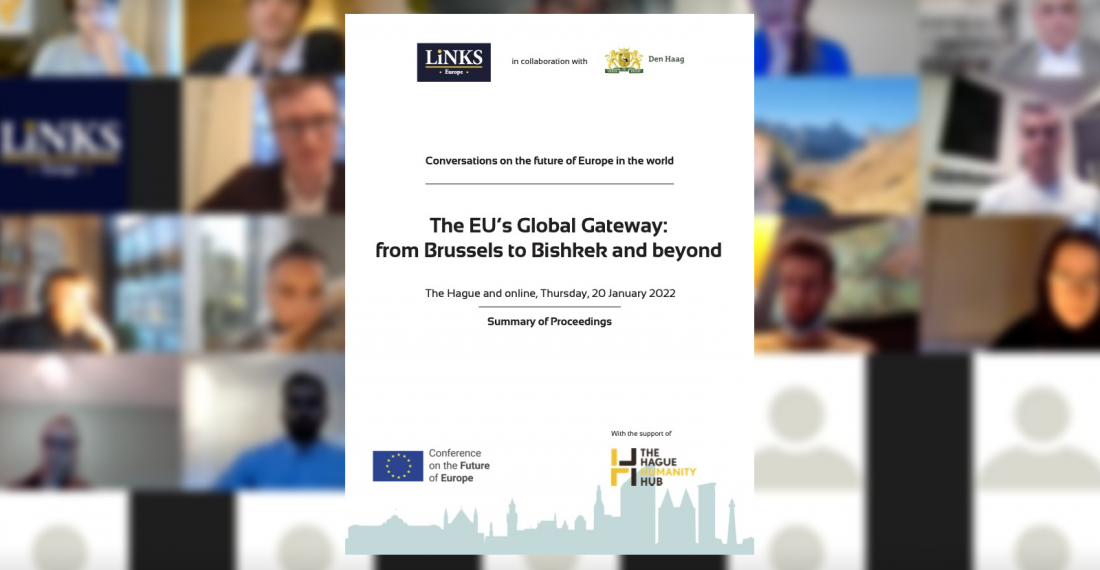LINKS Europe in collaboration with The City of The Hague and with the support of The Hague Humanity Hub, hosted the fourth in a series of clusters of events entitled ‘Conversations on the future of Europe in the world’ on Thursday, 20 January 2022. The event was hosted online from the LINKS Europe’s office in the The Hague. Around 35 participants joined online. The series ‘Conversations on the future of Europe in the world’ contributes to the debate in the framework of the EU’s ‘Conference on the Future of Europe’ process.
The moderator of the event, Amit Arkhipov-Goyal, Program Manager at Elva Community Engagement, welcomed participants and introduced the topic: “The EU’s Global Gateway, from Brussels to Bishkek and beyond”.
Ambassador Terhi Hakala, the European Union Special Representative for Central Asia made opening remarks in a pre-recorded message, after which there were presentations by Dr Wouter Jacobs, Academic Director of the Leadership in Commodity Trade and Supply Networks programme, Erasmus University Rotterdam, and Senior Fellow, The Erasmus Centre for Urban Port and Transport Economics (Erasmus UPT); and Dr Maaike Okano-Heijmans, Senior Research Fellow, The Clingendael Institute. This was followed by a lively discussion.
Read the full summary here.






